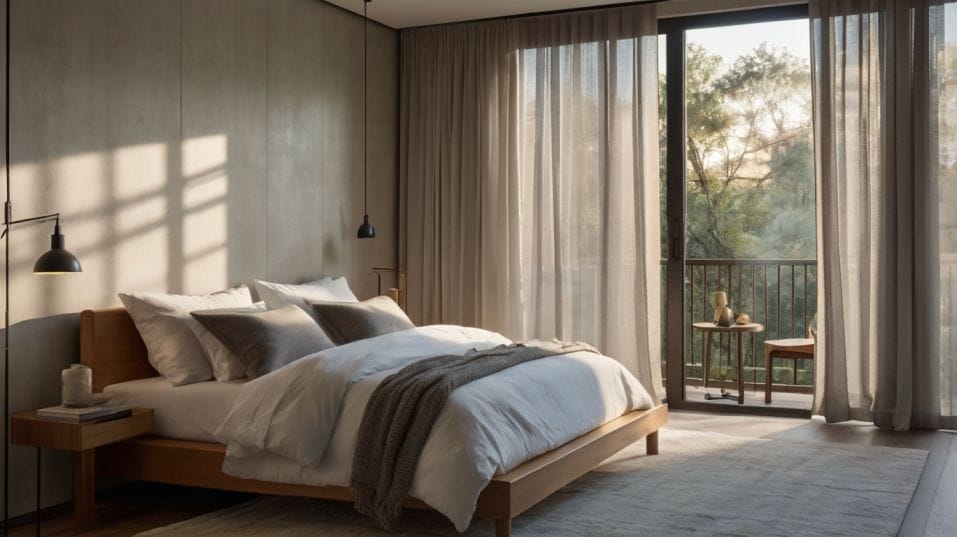Sleep and Longevity: What the Research Says
Discover how better sleep can boost your energy, clarity, and lifespan—without supplements or hacks. Start sleeping smarter tonight.

What if the secret to more energy, sharper focus, and a longer life wasn’t in a pill or workout—but in your sleep? Science now shows that quality sleep is the single most powerful lever you can pull to improve how you feel, think, and perform.
It’s not about clocking hours—it’s about getting the kind of sleep that repairs your body and resets your brain. And it’s easier to fix than you think.
Sleep Is More Than Rest—It’s Maintenance for Life
Sleep isn’t passive. It’s when your body gets to work. Deep work. While you sleep, your brain clears out metabolic waste, your muscles repair microscopic damage from daily stress, and your immune system kicks into regeneration mode.
Growth hormone surges during deep sleep. Memory consolidation happens in REM. Even blood pressure and inflammation markers reset during a good night’s rest. Miss out on that repeatedly, and your systems start to slip.
But when you stack high-quality nights—when your sleep is deep, consistent, and aligned with your biological clock—everything levels up: energy, focus, metabolism, and yes, the number of healthy years in your life.
What does the data say? A landmark 2023 study published in the Journal of the American College of Cardiology found that people with optimal sleep habits were significantly less likely to die early—from any cause.
Not just fewer heart problems or reduced cancer risk. We’re talking total longevity. So yeah—sleep matters. A lot.

Why 7–9 Hours Isn’t the Whole Story
You’ve heard the magic number: seven to nine hours. But just counting hours misses the point.
Quality matters more than you think. Getting eight hours of broken, shallow sleep doesn’t give your body what it needs.
You need to move through the full cycle—light sleep, deep sleep, REM—multiple times a night. That’s how the repair work gets done. And each phase handles different jobs: deep sleep rebuilds your body, REM resets your brain.
If you’re waking up groggy, sluggish, or mentally foggy, you’re probably not getting enough of the right stages—even if you technically “slept eight hours.” Sleep depth > sleep duration. So how do you shift the quality needle?
Start With Your Rhythm
Your body runs on a 24-hour internal clock—the circadian rhythm. Light is its primary control switch.
When your sleep schedule bounces around, or when you stay up late under bright lights, that clock gets confused. And when your circadian rhythm drifts, so does your sleep quality.
Lock In a Consistent Wake Time
Set a consistent wake-up time first. That’s your anchor. Everything else follows. Even on weekends, keep it tight.
You can flex a little, but try not to swing more than 30 minutes. Over time, your body will start winding down naturally, no effort required.
Use Morning Light to Your Advantage
In the morning, chase light. Sunlight in your eyes (not through a window, not with sunglasses) tells your brain it’s time to be alert.
That locks in your rhythm and makes it easier to fall asleep later that night. If you can’t get sun, use a 10,000-lux light box. It works.
Dimming Down at Night
At night, do the opposite. Dimming your lights signals your brain to start producing melatonin.
Avoid blue light from screens for 60 minutes before bed—or at least wear blue-light-blocking glasses if you absolutely have to be on a device. This one change can fast-track your melatonin response and help you fall asleep quicker.
Build a Sleep-Protective Routine
You don’t need a perfect “sleep hygiene” checklist. But you do need a repeatable wind-down routine—something that tells your body, it’s time to shut down now.
This doesn’t mean you need to meditate in candlelight while sipping chamomile. Just follow a pattern your brain can learn to associate with sleep.
What Actually Works
- Keep your evenings calm. Overstimulating media, heated arguments, or high-intensity workouts in the late evening? All of that spikes adrenaline and cortisol, the exact opposite of what you want before bed.
- Cool your environment. Your body temperature naturally drops before sleep. Help it along by lowering the thermostat (aim for 60–67°F) and taking a warm shower an hour before bed. The cooling effect afterward triggers the body’s sleep switch.
- Use sleep as a boundary. This is your recovery zone. That means no doomscrolling in bed, no work emails, and no snacking an hour before lights out. Guard that space. You’re not being “strict”—you’re being smart.
Rethink Caffeine, Alcohol, and Late Meals
Small choices can have big impact when it comes to sleep quality.
Caffeine
Caffeine has a half-life of 5 to 8 hours. That means your 3 PM coffee can still be partially active at 10 PM.
You might not feel wired, but your brain won’t sink into deep sleep as easily. Want better rest? Set a caffeine cutoff: no coffee after 2 PM. Earlier if you’re sensitive.
Alcohol
Alcohol knocks you out faster—but it also wrecks REM sleep. You’ll wake up feeling like you never hit full recovery.
If you’re going to drink, do it early. Then hydrate, eat something substantial, and give your body time to metabolize it before bed.
Late Meals
Heavy meals right before bed force your body to digest instead of restore. That interrupts sleep cycles. Keep dinner earlier if you can, and leave at least 90 minutes between your last bite and bedtime.
Your Body Loves Patterns—Give It One
Want to make high-quality sleep automatic? Create a repeatable daily pattern. Wake up at the same time. Move your body during the day. Eat at regular intervals. Wind down at night.
These behaviors send powerful timing signals to your internal clock, helping every part of your system—hormones, metabolism, recovery—work in sync.
Timing Your Training Right
Exercise is a key part of this rhythm. Not only does it improve sleep pressure (your body’s drive to sleep deeply), it also resets your circadian rhythm when timed right.
Morning or afternoon training works best. Late-night workouts? Skip them if you’re struggling to fall asleep.
Sleep Is the Multiplier
Think of sleep as a performance multiplier. Sleep well, and everything you do during the day gets upgraded. Train harder? You recover better. Work longer? You stay sharper. Eat clean? Your metabolism responds more efficiently.
Sleep doesn’t just help you live longer—it helps you get more out of every year you do live.
And the best part? It’s free. You don’t need fancy supplements, trackers, or blackout caves. You need consistency, awareness, and the willingness to treat sleep like the non-negotiable it is.
Final Thoughts
Better sleep isn’t just for the biohacker crowd. It’s for anyone who wants to show up sharper, stronger, and more energized every day.
You don’t have to overhaul your life to start. Just pick one habit—morning sunlight, earlier wind-down, consistent wake-up—and build from there.
The sooner you prioritize your sleep, the faster everything else starts to fall into place.
Your longevity isn’t just in the gym. It starts tonight—with the next good night’s sleep. Turn the lights down. Breathe deep. You’ve got this. Start now.




